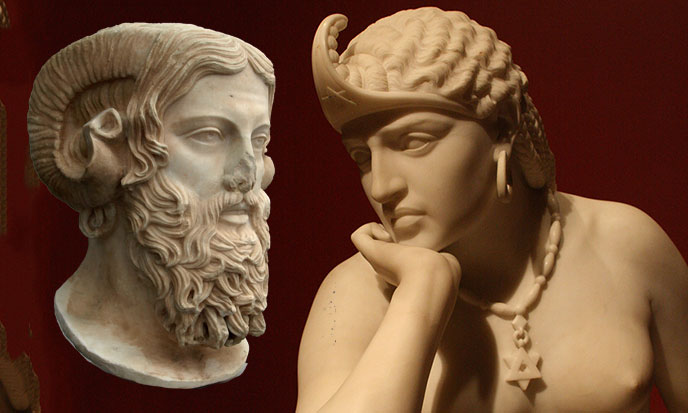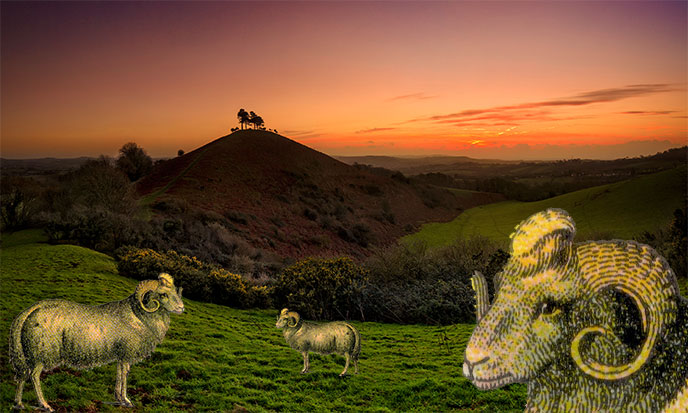
He came from northern Europe, he conquered half the planet, but we forgot. By what trick has Ram disappeared of Western memories?
This disappearance is even more inexplicable since many countries have kept his memory, under different names, such as Hyperborean Ramos, Hindu god Rama or Egyptian god Osiris-Ra. According to several insiders as Rudolf Steiner, George Ivanovitch Gurdjieff or Helena Blavatsky, the hokus-pocus was orchestrated: the name of Ram was cleared by Egyptian magic.
It is true that the priests of Isis are heard in potions and mastered the art of illusion. But still? How to get rid all European memories of a hero whose stature, influence and wisdom would mark other countries until now? And more importantly, why?
My head full of this nagging puzzle when my eyes fell on The Mystery Of The Great Pyramid, the major work of the Belgian Edgar Pierre Jacobs. His books raised a fire inside of me that was not extinguished: the sacred fire of knowledge.
After worshiping the author, by dint of rereading, I came to understand his works as an isider, and to consider Jacobs himself as a great initiate, as well as Mrs Blavatsky he widely read and probably encountered more than once. You should know that Jacobs was the initiator of his best friend Hergé, prompting him to develop in each Tintin’s adventure a real quest to solve a mystery, as Jacobs himself did in his own works.
Rereading his masterpiece, The Mystery Of The Great Pyramid, I shook the focal Sheikh Abdel Razek, the enigmatic character who punctuates the narrative of Mystery. It is part of literary characters who have all of me moved and fascinated on. Especially his two curses two heavy sentences magical meaning and hidden secrets. One occurs in the middle of the story, the other at the end, and they form a radiant diptych.
The first sentence, or rather the first mantra that Sheikh teaches Mortimer should protect from all evil, if Prof Mortimer pronounces waving the talisman provided by Sheikh Abdel Razek. The mantra is: “By Horus, stay!” It saves Mortimer’s life under the menace of a cobra in his room in Cairo. The second mantra is pronounced by Sheikh when he erases the memory of the felon Olrik, prostrate on an empty sarcophagus: “Let your name be no more!” struck him Sheikh.
It loses all memory of her past life, and share staggered across the Sahara. It will be collected in another album by Professor Septimus who shall Guinea Pig, Human-Robot Yellow Mark. These two magic mantras have always intrigued me, I suspected they were more than just a plot in a comic element. Now I’m sure the insider Jacobs wanted to get this message: “Let your name be no more!” means that a great name from the past was erased.

The name of a famous person has been eradicated from our minds by the subtle action of the Egyptian magic: the memory of the character was simply erased. “Let your name be no more!” This is the curse that took away the illustrious Rama Western memories. And his name is in fact remained in the form of Ra father of Horus. Hence the second initiation sentence issued by Edgar Pierre Jacobs in his Mystery of the Great Pyramid: “By Horus, stay!”
This mantra tells us about the identity of this character: Horus was Ra himself and the son of Osiris-Ra, the great Egyptian name of Rama. His memory is kept by Horus, and by the Indian Rama too, actually – though partly.
Rama remains by Horus, but the Egyptian curse did erase his full name. Edgar Jacobs does not tell us, but he drags many clues over the 112 pages of the Mystery of the Great Pyramid, head of initiatory work I invite you to reread emergency!
This particular quest is only opening since I have not solve the two enigmas I started with: how to get rid all European memories of a hero whose stature, influence and wisdom would mark other countries until now? And more importantly, why? The only thing I can point at now is the fact Rama’s name and feit were erased out the living book of our western memories, and it is sad and puzzling.


